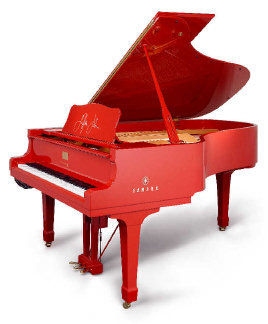1. What is the difference between classically trained pianists and professionals who play in bands, clubs and piano bars.
ANSWER: Professional musicians play chords, and chord-style piano is faster and easier to learn than the traditional, or classical teaching method.
2. Why is this style of learning faster and easier?
ANSWER: Because (1) you only have to read one line of music, instead of two; (2) you skip years of music notation and scales exercises; (3) you get to start learning the songs you really want to play after only a few weeks of practice, instead of being forced by the instructor to work through an endless progression of practice books.
3. What kind of music can I play with chords?
ANSWER: Any style of music, except classical. This includes popular music, country, gospel, blues, old standards, rock & roll — anything except classical (such as Bach, Beethoven, Mozart, etc).
4. What is a chord?
ANSWER: Three or more notes played simultaneously. Beginners will play chords with the left hand instead of bass notes normally shown on the bass clef. You can also play chords with the right hand to enhance the melody, to add flourishes, or make it more interesting. These are things you don’t do with classical music, which is very rigid. Chord-style piano, on the other hand, is very flexible.
5. Don’t you have to start lessons when you are very young?
ANSWER: No. Young children’s brains soak up learning faster than adults, but adults can also learn. Take me, for example. I did not start learning to play the piano until I was 53. Now I play as a volunteer and as a professional with a song list of over 100 songs I play without sheet music.
6. I don’t have a piano or keyboard. What should I do?
ANSWER: I can give you some tips on what to look for, and explain the difference between pianos and keyboards, and new versus used. Pianos come in various sizes and shapes, such as upright, baby grand, grand, and concert grand. Basically, the larger the piano, the better it will sound, but of course, the manufacturer makes a big difference also. Pianos are acoustical instruments, and keyboards are electronic. Pianos have to be tuned periodically by a professional piano tuner; keyboards never have to be tuned.
7. How can I tell a good teacher from a bad one?
ANSWER: Simple. A good teacher will teach you what you want to learn. A bad teacher will treat all students the same, forcing them to work through one boring book after another of public domain songs and classical music. If I can’t teach you what you want to learn, like Classical or Rapp for instance, then I will tell you and not get you started on a teaching program that is unrelated to your goals.
